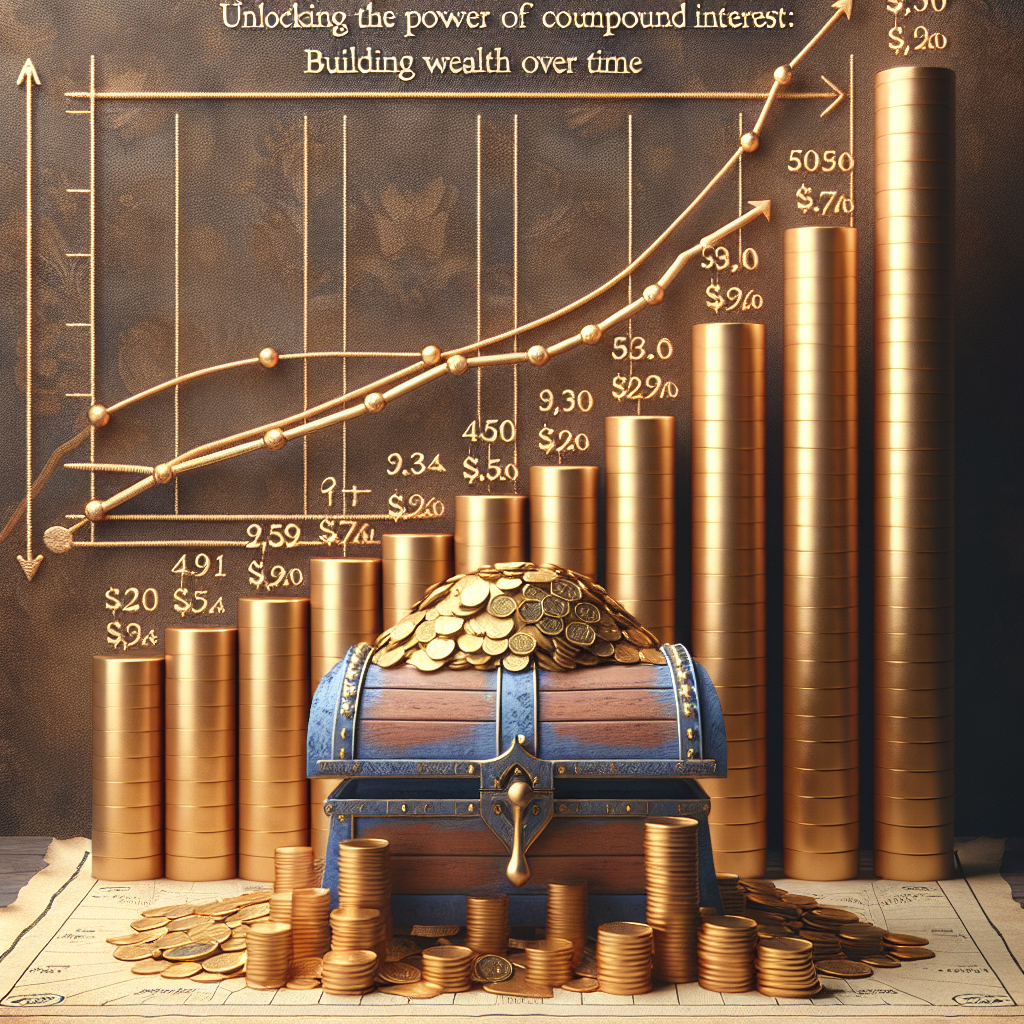Title: Unlocking the Power of Compound Interest: Building Wealth Over Time
In the world of personal finance and investing, few concepts hold as much power and potential as compound interest. Often described as the "eighth wonder of the world," compound interest is a fundamental principle that can significantly enhance your financial well-being over time. Whether you’re just starting to save or are a seasoned investor, understanding and leveraging the power of compound interest can set you on the path to substantial wealth accumulation.
The Basics of Compound Interest
Compound interest, at its core, is the process of earning interest on both your initial investment (the principal) and the accumulated interest from previous periods. Unlike simple interest, which is calculated only on the principal, compound interest allows your investment to grow exponentially as the interest itself begins to earn interest over time. This creates a snowball effect, where the growth accelerates as the investment lengthens.
Consider this basic example: if you invest $1,000 at an annual interest rate of 5%, compounded annually, after one year, you will have $1,050. In the second year, the 5% interest is calculated on $1,050, not just the original $1,000, giving you $1,102.50. Over the years, this compounding effect significantly amplifies your returns.
The Time Factor
The true magic of compound interest lies in the element of time. The longer you let your investment compound, the more substantial your returns become. This is why financial advisors often stress the importance of starting to save and invest as early as possible. Even small contributions can turn into significant sums over long periods.
Consider two hypothetical investors: Alice starts saving $5,000 annually at age 25 and stops at 35, allowing her investment to grow until retirement at 65. Bob, on the other hand, starts saving $5,000 annually at age 35 and continues until he turns 65. Assuming both achieve an average annual return of 7%, Alice, despite contributing for a shorter period, would end up with more money than Bob due to the additional decade of compounding.
Strategies to Maximize Compound Interest
-
Start Early: The earlier you start investing, the greater the compounding benefit. Time is your most valuable asset when it comes to compound growth.
-
Consistent Contributions: Regular, consistent contributions to your investment account, such as through automatic payroll deductions or regular savings, can help maintain your growth trajectory.
-
Reinvest Earnings: Keep your interest or dividends invested to take full advantage of compounding. Reinvestment allows your earnings to generate more earnings over time.
-
Diversify Investments: Diversifying your portfolio can help mitigate risk and potentially yield more consistent returns, which is crucial for benefiting from compounding over the long term.
- Stay Committed: The stock market and other investments can be volatile. Staying committed to your investment strategy, without succumbing to panic selling, enhances long-term compounding.
The Impact of Compound Interest on Debt
While typically discussed in the context of investments, compound interest also applies to debts. It can work against you if you carry balances on credit cards or other loans with compounding interest. In such cases, the interest can quickly balloon what you owe. Hence, understanding compound interest is equally crucial in debt management, highlighting the importance of timely payments and reducing debt as soon as possible.
Conclusion
Harnessing the power of compound interest is about patience, discipline, and making smart, informed financial decisions. By understanding how compound interest works and applying strategies to maximize its benefits, you can build substantial wealth over time and secure financial freedom. Whether you’re saving for retirement, a home, your child’s education, or any future goal, let compound interest be the cornerstone of your financial strategy. Remember, the best time to start was yesterday; the second-best time is now.
